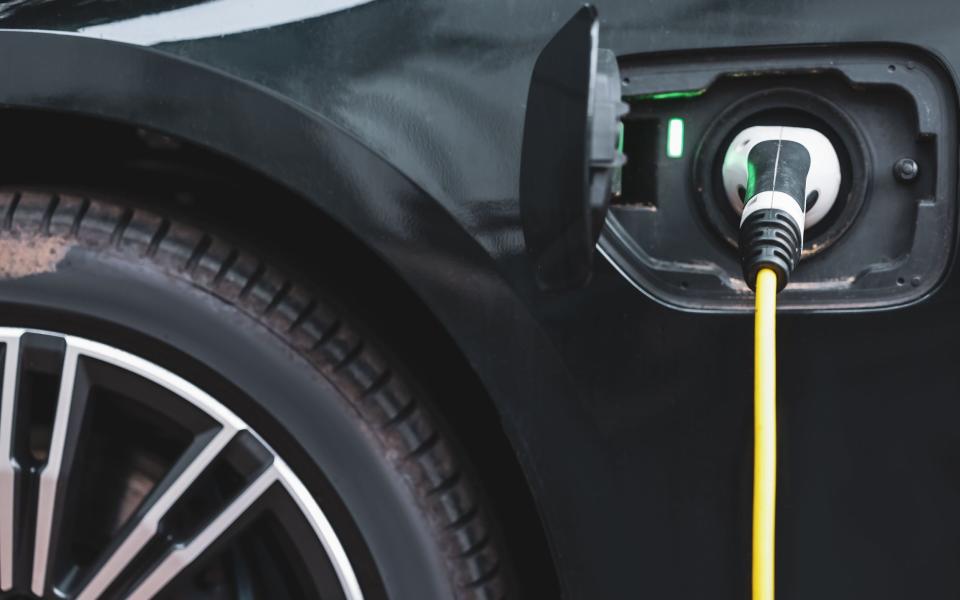Electric car discounts now ‘unsustainable’ amid record price cuts

Manufacturers have warned that high levels of discounting for electric cars cannot continue “indefinitely” amid a downturn in household sales.
Electric vehicle sales rose overall by around 6pc in May, compared to a year earlier, taking their share of the market from 16.9pc to 17.6pc.
That represented a faster rate of growth than the entire car market but the Society of Motor Manufacturers and Traders (SMMT) warned that the majority of the sales are still to businesses and are being boosted by aggressive price-cutting.
Discounting has reached record highs this year, with the average price cut on a new electric vehicle reaching 10.6pc in April, according to online dealer Auto Trader.
Despite this, the share of EVs sold to private consumers fell from 20.2pc to 18.6pc in May – continuing a trend seen in previous months.
Mike Hawes, chief executive of the SMMT, said the latest sales figures underlined the case for introducing financial support for consumers, such as subsidies or tax cuts.
He said: “Consumers enjoy a plethora of new electric models and some very attractive offers, but manufacturers can’t sustain this scale of support on their own indefinitely.
“Their success so far should be a signpost for the next government that a faster and fairer transition requires carrots, not just sticks.”
Carmakers are racing to sell more EVs to meet net zero targets brought in by the Government in January.
Under the so-called zero emissions vehicle (ZEV) mandate, 22pc of all the cars sold in the UK this year must be electric.
The target then rises annually until it reaches 80pc in 2030, before a total ban on new petrol car sales in 2035.
However, manufacturers including Vauxhall owner Stellantis have complained that the targets are outpacing consumer demand.
That has prompted Stellantis and rival Ford to warn they could be forced to restrict sales of petrol cars in Britain in order to artificially boost their EV sales figures.
Bosses are also warning that they are not prepared to cut EV prices to unprofitable levels in a bid to boost take-up.
On Wednesday, the SMMT – which represents the car industry – echoed those concerns, arguing that discounting ultimately “undermines the ability of companies to invest in next-generation technologies”.
It added: “The market performance underlines the need for the next government to provide private consumers with meaningful purchase incentives.”
It came as overall sales in the car market grew for the 22nd month in a row, with registrations rising by 1.7pc.
That was the best May market performance since 2021, the SMMT noted, although it remained a fifth below sales levels before the pandemic.
Sales of petrol cars fell by 2pc but demand for more fuel-efficient hybrids surged.
Standard hybrid sales rose 10pc, while sales of plug-ins were 31pc higher.
Jamie Hamilton, automotive partner and head of electric vehicles at Deloitte, said: “The overall market share of electric vehicles is also well below the required 22pc, as set out in the ZEV mandate.
“Consumers may have been put off by high interest rates and a squeeze on their spending power due to the cost of living.
“There needs to be more focus on removing the main barriers preventing the average consumer from contemplating a switch to electric.
“A raft of new low-cost options in the electric vehicle market are expected to land this year which may tempt consumers to make the transition.”

 Yahoo Finance
Yahoo Finance 